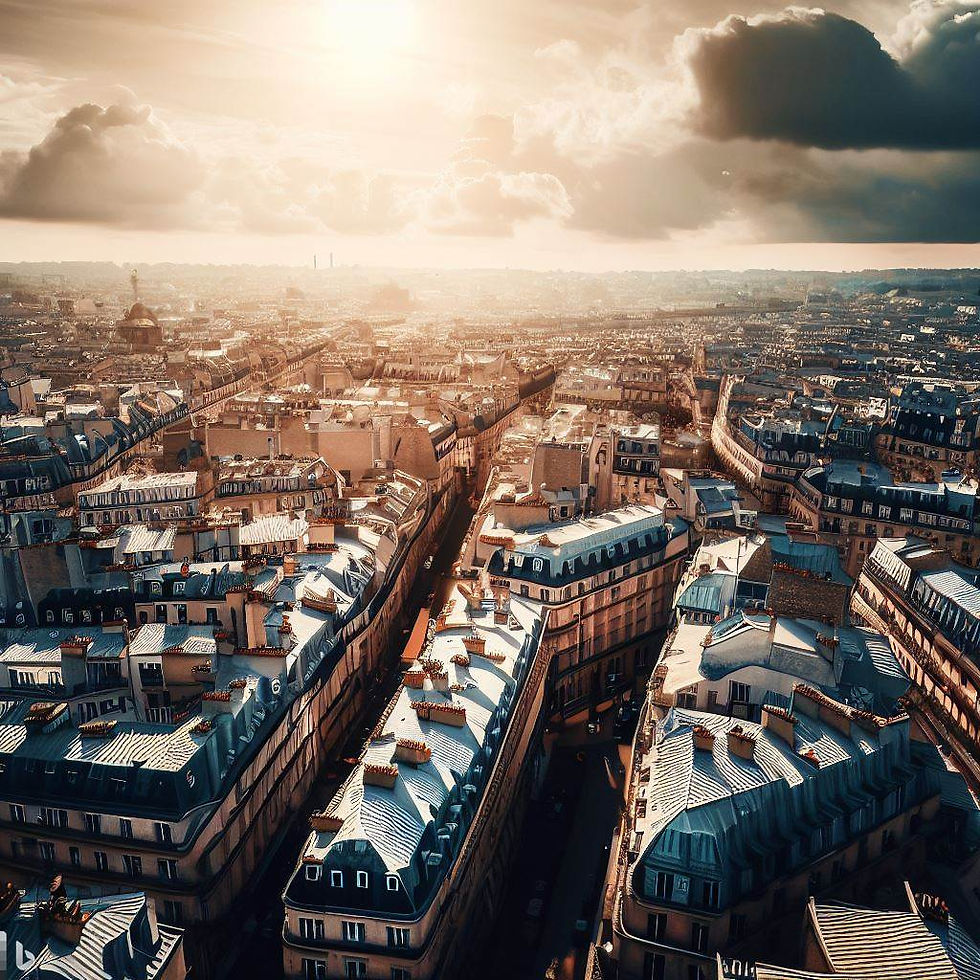Discovering the Origins of Paris' Nickname: The City of Light
- Aug 8, 2023
- 2 min read
Paris, the picturesque capital of France, is renowned for its architectural beauty, art, and culture. However, one of the city's most well-known nicknames, "The City of Light," often piques the curiosity of travelers and history enthusiasts. In this article, we will delve into the origins of this iconic nickname and explain why Paris is perceived as the "City of Light."

The Light of Knowledge:
The nickname "The City of Light" traces its roots back to the Enlightenment era, a period in European history marked by the flourishing of arts, philosophy, and science. In the 18th century, Paris was the intellectual hub of Europe, attracting brilliant minds such as Voltaire, Rousseau, and Diderot. This era of intense creativity and intellectual exchange earned Paris its "City of Light" status due to the dissemination of knowledge and enlightened thought that took place there.
Cultural and Artistic Heritage:
Paris's rich cultural and artistic heritage has also contributed to the longevity of this nickname. The city is home to some of the world's most famous museums, art galleries, and monuments. Iconic institutions such as the Louvre, housing Leonardo da Vinci's Mona Lisa, and the Notre-Dame Cathedral, a symbol of Gothic architecture, have further solidified Paris's reputation as a dazzling cultural center.

Pioneering Urban Lighting:
A lesser-known aspect of the nickname "The City of Light" is Paris's significance in the history of urban lighting. In the 19th century, Paris was one of the first cities to adopt gas street lighting, transforming its nighttime appearance. Streets, squares, and monuments were bathed in a warm glow, creating a magical and inspiring atmosphere that contributed to cementing the city's nickname. Later on, the introduction of electric lighting further enhanced this aspect, making Paris one of the first cities to be fully illuminated at night.
A Shining Legacy That Endures:
Today, while the sources of light have evolved and the nickname has taken on a broader meaning, Paris continues to embody a "City of Light" in many ways. Its status as a global hub for fashion, cuisine, art, and culture persists, all the while illuminating the minds and hearts of those who visit.
The nickname "The City of Light" is not merely a poetic expression but also a reflection of a rich history, cultural and artistic flourishing, as well as Paris's urban innovation. Whether it's its role during the Enlightenment, its cultural legacy, or its pioneering urban lighting, Paris still shines as a beacon of knowledge, beauty, and inspiration for the entire world.
%20(5).jpg)



Comments